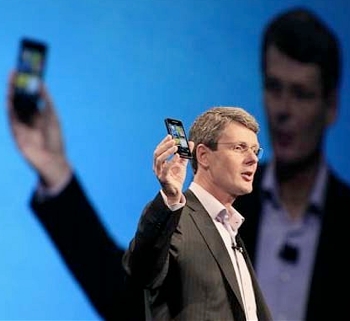Research In Motion has set a firm date for the launch of its next-generation BlackBerry 10 operating system. According to the announcement, the launch event will happen simultaneously in multiple countries around the world on January 30, 2013, and will include a pair of BlackBerry 10 devices – a full touch-screen smartphone and one resembling its current Bold flagship line with a physical QWERTY keyboard.
"In building BlackBerry 10, we set out to create a truly unique mobile computing experience that constantly adapts to your needs. Our team has been working tirelessly to bring our customers innovative features combined with a best in class browser, a rich application ecosystem, and cutting-edge multimedia capabilities," Thorsten Heins, chief executive of RIM, said in a statement this morning.
The importance of BlackBerry 10 for the Canadian firm cannot be overstated. It represents the company's best and probably last shot at a turnaround, in a market now dominated by Apple iOS and Google Android smartphones, and with Microsoft set on taking the third spot away from the declining BlackBerry platform.
The company has moved quickly to reinforce its relationship with the U.S. government, getting security certification that will allow government agencies to deploy BlackBerry 10 as soon as they are available. But even in the corporate and government segments where RIM has traditionally been favored due to the security of its infrastructure, BlackBerry devices have been losing ground. Just recently the US Immigration and Customs Enforcement as well as the Defense Information Systems Agency revealed plans to drop their exclusivity contracts with RIM. Yahoo also said it would be dropping BlackBerry as their preferred handheld.
It's a long road ahead but RIM isn't ready to give up. Last month, the company said it had delivered BB10 phones to over 50 carriers for testing and investors responded by sending its stock up by 10%.
Among the key features the company is touting are an adaptive dual layered on-screen keyboard, BlackBerry Balance to keep work and business content separately stored on the phone, BlackBerry Flow and Hub for easier navigation and quick notification updates, and even to lost customers it's offering the Fusion platform for them to manage iOS and Android devices through the same servers used for BlackBerry smartphones.
